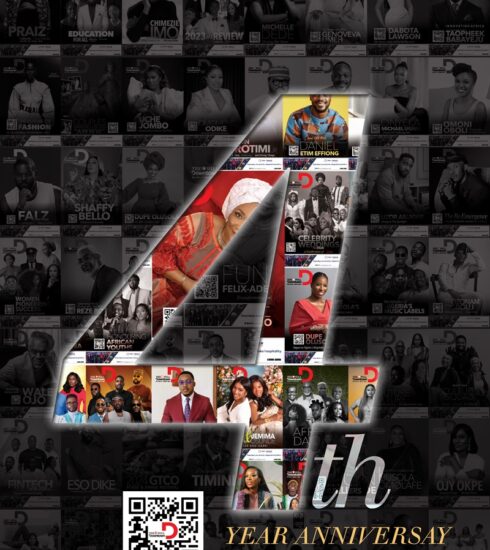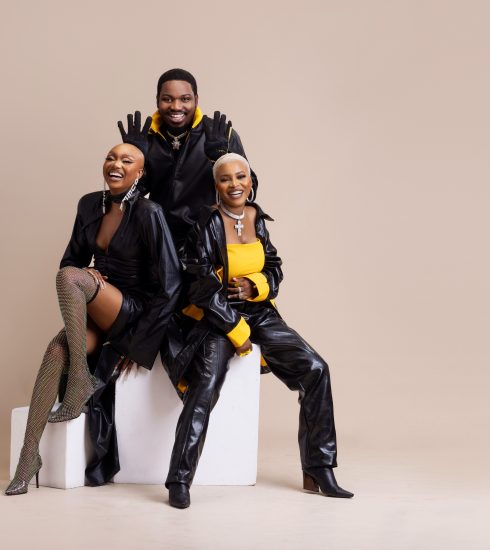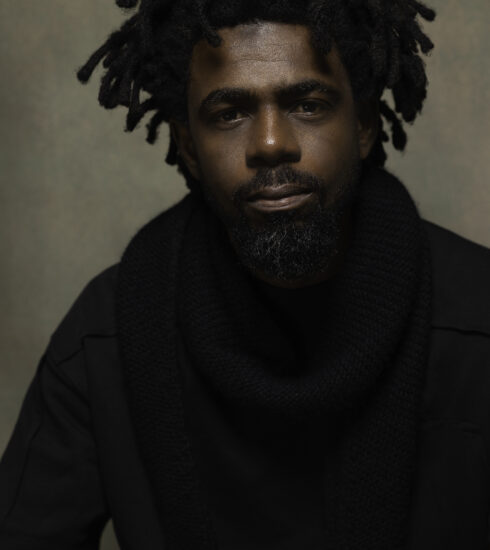Michelle Dede: Owning Her Space
Michelle Dede’s career trajectory in the film industry is nothing short of amazing. She is the epitome of a global citizen, having been born in Germany and raised in Brazil, Australia, Ethiopia, and the United Kingdom. Her acting career happened by chance; she did not plan to pursue it. However, destiny had other ideas, and Michelle has been a shining star in Nollywood since her debut. She has invested in every role, from her stellar performance in the TV series Desperate Housewives Africa to popular films like What Lies Within and Up North. Her position as a major player in the Nigerian film industry was solidified in 2013 when she co-produced the romantic comedy Flower Girl, showcasing her talent behind the camera.
Dede is well-known not only as an actress but also as a voice actor and TV personality. She has demonstrated versatility across several media platforms by hosting well-known shows, including The Family Game Show, Moments Nigeria, and Big Brother Nigeria. Michelle says the secrets to her success have been her passion for her work, her willingness to learn, and her openness to growth. Her success in the cutthroat entertainment industry can be attributed to these attributes, which have enabled her to discover her voice and forge an impressive career in various industries.
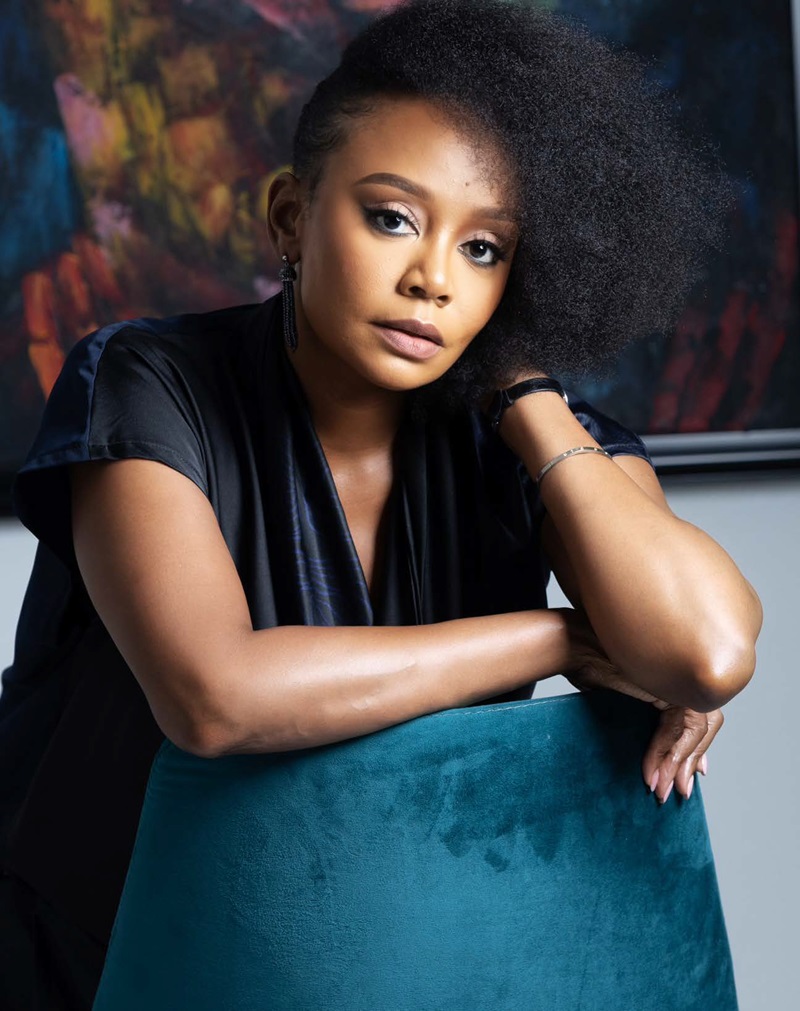
In this interview with THEWILL DOWNTOWN’s Dorcas Akintoye, Michelle Dede discusses her journey in the movie industry, her inspirations, her thoughts on the future of Nollywood, and how her love for learning and passion for excellence have shaped her into the star she is today.
What inspired you to pursue a career in acting, and how did you get started?
I never pursued a career in acting; I believe it was fate.
A friend and actor, Thelma Ojiji, who was living in Abuja at the time, came to Lagos in early 2014 for Ebony Life TV’s Desperate Housewives Africa auditions. I ended up being her scene partner while she was rehearsing to memorise lines for several scenes. She felt I should give it a shot and kept trying to convince me to go along with her for the open auditions. After two weeks of convincing, I reluctantly went along with her, with no intention to go ahead with it. She filled out a form for herself and then handed me one with my name, details, and a number for the cue.
Her belief in me was the catalyst.
I went into the auditions nervous and unsure of what I was doing, but much to my surprise, the casting directors praised my audition. They then asked me to read for three other lead roles while there. A few months later, both Thelma and I were called back for the second stage of auditions. We didn’t hear from them again until October 2014, when one of the series producers called me back to offer me a lead role.
It was a baptism by fire, even though I had been told by a producer that the Disney executives in the U.S saw my audition and thought I’d make the perfect African version of the character Susan Meyer from the original U.S series. For the first few months of filming, I kept thinking, “What am I doing here? I’m a TV presenter, not an actor”. I’m grateful to Thelma and my co-stars on the show, Nini Wacera and Kehinde Bankole, as well as the head of the costume department, Obijie Oru, and one of the unit directors, Dickson Dzakpasu, for the encouragement they gave me throughout the four and a half months of filming. Those two cast and two crew members kept reminding me that I deserved to be there and was talented.
Otherwise, the impostor syndrome or self-doubt I felt would have been mentally crippling.
By the time the series aired in 2015, I was a little more confident as an actor, and the rest is history.
You’ve played a variety of roles across TV, film, and stage; what’s the most challenging character you’ve portrayed, and why?
Playing Tari Gambadia in Desperate Housewives Africa was the most challenging mentally. Because I didn’t believe I could do it. Playing another character in a yet-to-be-released Nemsia production was the most physically challenging because I had to be in special effects makeup on my face and body for 16-18 hours daily for two weeks in a village. The unpredictable weather conditions and roach size mosquitos didn’t help either. Especially as I was sick with the flu during part of the production, but decided to continue filming. Without giving away any spoilers since the film hasn’t been released yet, the character also went through a transition, and although it was challenging, it was rewarding, as well as liberating, to finally get to play a villain.
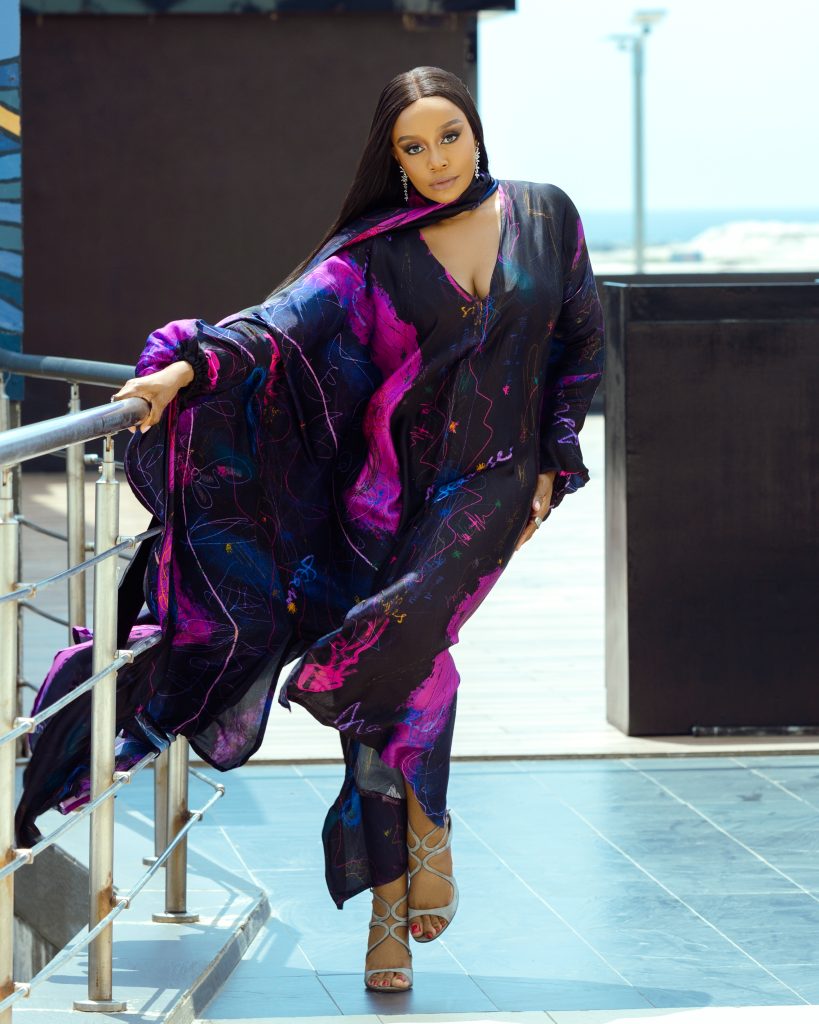
What was it like co-producing Flower Girl in 2013?
At the time, I wanted to learn about production so I could produce TV shows that I would host or hire other hosts for.
I spoke to the director, Michelle Bello, about being her assistant while preproduction took place, and she asked me to co-produce instead. I refused because I had no prior filmmaking experience. I later decided to accept the job, and took on the biggest challenge I’d ever taken professionally. It was months of hard work, unlike anything I’d ever done, as I was also the location manager. Another baptism by fire that I believe I surmounted very well.
How I juggled all that I did on the film set when principal photography began on the island, and I still co-hosted The MTN family game show for a week in between, on the mainland is still baffling.
As the saying goes, “Where there is a will, there is a way.”
How has your acting style evolved over the years?
When I began in 2014, I was an experienced TV host and MC who felt unsure about her abilities as an actor. The feedback, award nominations and subsequent BON (Best of Nollywood) award win gave me the confidence to pursue it more intentionally. I believe my craft has evolved because I understand the importance of being rather than playing a character. Embodying the person, their likes, dislikes, quirks, passions, motivations, fears, beliefs, etc. I find and create reasons to empathise with the characters I play. In the past, I didn’t do that; in the past, if a character was far removed from whom I was as a person, I found it difficult to empathise with them. As a result, I believe my more recent work and yet to be released work will display that evolution.
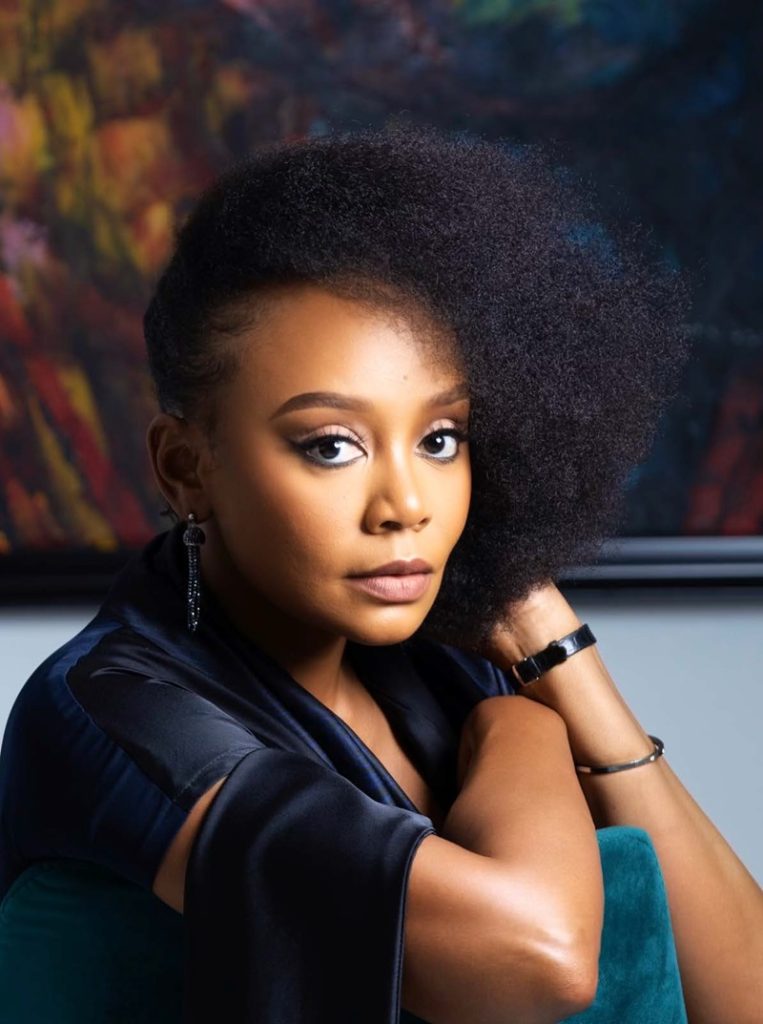
Who are some of your acting influences, and what have you learned from them?
As a teen, I watched a lot of films with my father and was in awe of Meryl Streep, Daniel Day-Lewis, Gary Oldman and later, as an adult, Tom Hardy, Tilda Swinton, Catherine Blanchett, Sophie Okonedo, Cillian Murphy, Viola Davis and Nigerian theatre actor Omonor Imobio Somolu. I realise that the actors who most inspire me are the ones who completely morph into other people. From their physical appearance (with the aid of superb costume, makeup and production budgets), to their mannerisms, body language, and in some cases their voices, and accents.
I’m enthralled by their versatility and ability to play a wonderful myriad of people of different ages and socio-economic backgrounds.
They do so in a way that seems so effortless, even though I’m well aware that it requires a tremendous amount of dedication and work for them to achieve what they do.
Growing up in different countries, such as Brazil, Australia, Ethiopia, and the UK, how has your multicultural background influenced your career and creative outlook?
I can’t speak for other people who have grown up in several countries, but I believe my experiences made me more open to people of different races, religions, beliefs and cultures. As a child and in my early to late teens, I didn’t see the benefit of having to move every few years, and leave friends and what was familiar behind. As an adult, I realised that it was a blessing. I’m extremely thankful for that upbringing, I had. I often randomly call my father just to thank him for it, and for being a great girl dad.
The result is how I see the world and my acceptance of people of varied cultures, races, religions, nationalities, etc.
I believe my past experiences have and will continue to allow me to adapt to different environments. When you have lived in several countries during your formative and adult years, you learn to adapt! Sink or swim. Nigeria has been the hardest place to swim; it’s been a slower breaststroke, not a fast front crawl. However, I’m a good swimmer, metaphorically and in reality.
How did being in Nigeria during a holiday lead to the start of your career?
Adebola Williams and his then co-producer partner Dele Fadahunsi had a TV show called Nigeria International. Adebola overheard sister Najite and I speaking at a coffee shop in 2006. He introduced himself and asked me if I’d ever done radio because he thought I had an interesting voice.
After telling him I hadn’t, nor was I interested in doing so, he mentioned that he was filming an episode of his show and I should come on set one day. I didn’t, then coincidentally, a week later, he was filming another episode, and the actor who was supposed to host it didn’t show up. He called me, and pleaded that I just do an intro to the episode which was being filmed at Nike Art gallery. I showed up, he told me what to say and I did it afraid. While we were filming, one of the producers of Big Brother Nigeria walked into the gallery to buy art. She stood watching us, and when we were done, she introduced herself and asked if I was a TV host; I responded that I was just on holiday and helping Debola and Dele out.
She asked if I’d like to come for an audition for a game show; I politely and nervously declined, then left. A few days later, she called me, and said Dele had given her my number. She asked me to come and audition, I declined again till my sister convinced me to just go for it. I went, did what I felt was a terrible audition, forgot about it and continued with my Detty December plans. A week later she called again and asked me to come audition for the co-host of Big Brother Nigeria. I nervously declined yet again, till my sister and friend cajoled me into going, as I had nothing to lose. As a fan of Big Brother UK, the thought was exciting but also nerve racking, because I was somewhat shy, very insecure, and at the time socially awkward around people I didn’t know. The thought of hosting a live TV show wasn’t something I’d never even imagined.
When I finally went to the audition, I was jumping around and very hyper because I was extremely nervous. I remember shouting so much into the microphone they gave me a prop. I’m laughing as I respond to this because they had to keep telling me to tone it down. They must have liked my youthful exuberance and expressive hand gestures because when they called me back for the final stage of the auditions, I remember asking, “Seriously, you want me to come back? Are you sure!?”.
I truly believe God wanted me to host, because while the producers were deliberating on who would co-host the show, I was occupied with trying to leave Nigeria and go back to my life and job in London. Three times I was dropped off at the airport for a confirmed booking, and three times B.A(British Airways) kept telling me I was on standby. By the third and final time, when my sister and a friend picked me up from the airport, they both said there must be a reason God wanted me to stay in Lagos longer, because being placed on standby repeatedly didn’t make sense to any of us. Two days later, before I was supposed to leave again, I received a call from one of the executives at Endemol offering me the job as co-host.
I sat with my mouth ajar in the car for a few minutes, then screamed in both excitement and fear of the unknown. Then I got out of my friend’s car, and we both knelt on the side of the road in Surulere and started praising God.
Co-hosting the show was my first baptism of fire in the entertainment industry. I’m grateful for that experience, the people who hired me, and especially for Anton Burggraaf, the South African series producer who trained me on the job, and Edi Lawani, the stage manager/producer who kept encouraging me throughout the six months I worked on the show. They both kept telling me I was doing a great job, even when I was shaking on stage, made mistakes, or felt anxious. They’d say, “You were great, don’t worry, tomorrow you’ll be even better!” and would always hug me or give me a high-five at the end of the live eviction shows.
I’ve been very fortunate to have my sister Najite, a few friends and a handful of colleagues who have poured words of affirmation onto me when I needed it most at the start of each of my careers within the entertainment industry. That’s why, years later, I always mention them because they saw something in me that I didn’t see in myself.
As someone who has hosted major TV shows and events, how do you see the role of media evolving in Nigeria and globally?
Due to technological advancements and globalisation, the role of media has led to changes in how information is viewed, disseminated, consumed, and shared. In both Nigeria and globally, the rise of digital platforms has changed how people consume all content, including news, TV shows, magazines, newspapers etc. With podcasts, and vlogs, citizen journalism has become more common.
Everyone with a phone or other devices can become news reporters or hosts from the comfort of their living rooms or while out reporting in their neighbourhoods.
Hybrid newsrooms, where professional journalists produce content for both traditional and digital platforms, are the norm now. Traditional journalism incorporates multimedia elements like videos and graphics to capture and retain the reader’s attention. Globalisation and communication channels have influenced the evolution of media in Nigeria, which has evolved both locally and internationally.
While there are fewer big TV shows in Nigeria than there were a decade ago due to the advent of social media, podcasts, and vlogs, the West still has many big shows, formats, and reality shows airing on TV and streaming platforms. The only big shows we currently have are Big Brother Naija and Nigerian Idols, which still air on TV.
As a host, I’d love to see Nigerians create indigenous formats that could go global, or even have Nigerian versions of shows like The Masked Singer, Dancing with the Stars, Love Island, or Love Is Blind.
What do you think sets a great TV host apart from the rest?
Being yourself, unapologetically! Not copying anyone’s style of hosting or accent, an ability to think quickly on your feet and adlibbing. A great TV host must be a good listener, especially for those who host shows where interviews are conducted; it is crucial. A talk show or podcast host should listen intently and never repeatedly interrupt a guest. These are a few things that set a great TV host apart from the rest. What makes each of us different is our unique selling point; trying to be someone else isn’t. It’s also important not to play a chapter when hosting; if you aren’t authentically you, flaws and all, it will show.
Having been part of projects like Desperate Housewives Africa and What Lies Within, what are your thoughts on the growth of Nollywood?
Nollywood’s growth has been exponential, and it has the potential to become a global cultural powerhouse. I believe Nollywood’s success has and is inspiring other African countries to invest in their film industries. Our stories are both personal and relatable, which appeals to a diverse audience. We tell stories that are authentic to Nigerian culture and shape narratives across Africa and beyond. Nollywood has created more career opportunities in Nigeria, including acting, directing, producing, costume design, as well as set design, to name a few. The possibilities with the Nigerian film industry are endless.
What do you think Nollywood needs to do to gain even more global recognition?
Nollywood can gain more global recognition by improving the quality of films, collaborating more with peer filmmakers as well as international filmmakers, and by addressing funding and piracy issues.
Nollywood needs to stop cutting corners; we need to improve the quality of films by investing more in all aspects of filmmaking, including scriptwriting, production values, hair, makeup, and more, instead of focusing on the technical side alone. Filmmakers also need to be open to learning more and taking constructive criticism in order to grow. Piracy is also a major issue; it erodes filmmakers’ profits and cheapens the perception of Nigerian cinema. Distribution also makes it challenging to showcase Nollywood films on international screens. We also need more investment, as quality productions are expensive to make.
What is your vision for the future of the Nigerian movie industry?
My hope is that we become the powerhouse of African cinema if Nollywood continues to focus on quality storytelling, diversity, and innovation. Collaborations could lead to higherquality productions and even more diverse storytelling. New technologies could also allow filmmakers to tell stories independently and without censorship. I also hope for a Nollywood that has unions that can implement and protect all filmmakers’ rights, including working hours, pay, health insurance and general safety on sets.
What advice would you give to young women looking to break into Nollywood, both in front of and behind the camera?
Take the time to work on yourself through introspection. Be comfortable with whom you are before you come into the industry and as you evolve, get older, or become famous. Don’t conform to the industries’ standards of what you should look like, be like, or sound like; your differences are what make you stand out. Success doesn’t happen overnight; be passionate about the work and your craft, and be prepared to work hard and smart. Keep reminding yourself that you are enough even when others try to make you feel like you aren’t. Believe in yourself and your abilities! Keep a small group of friends who aren’t in the industry and who will be honest with you through good and bad times; they will keep you grounded.
Speak up for yourself when you need to. Trust your instincts. Remember that being a filmmaker is a job description, not the content of your character.
How do you maintain your versatility across acting, hosting, and voice-over work?
I’m passionate about my craft and learning. As a result, I’m always open and eager to improve and learn more. The rest is God, because he led me into each sector of the industry that I work in.
What career path would you have pursued if you weren’t in the entertainment industry?
Fashion Design. I studied fashion design and marketing at university. I wanted to be a fashion designer. My love for fashion is still within me.
However, acting and hosting TV shows give me the most joy and fulfilment.
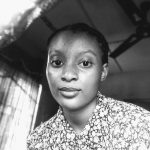
Dorcas Akintoye is a versatile writer with a passion for beauty, fashion, relationships, and culinary delight. With a keen eye for detail and a passion for storytelling, she adds a touch of elegance to every topic she explores. She is a writer at THEWILL DOWNTOWN.




